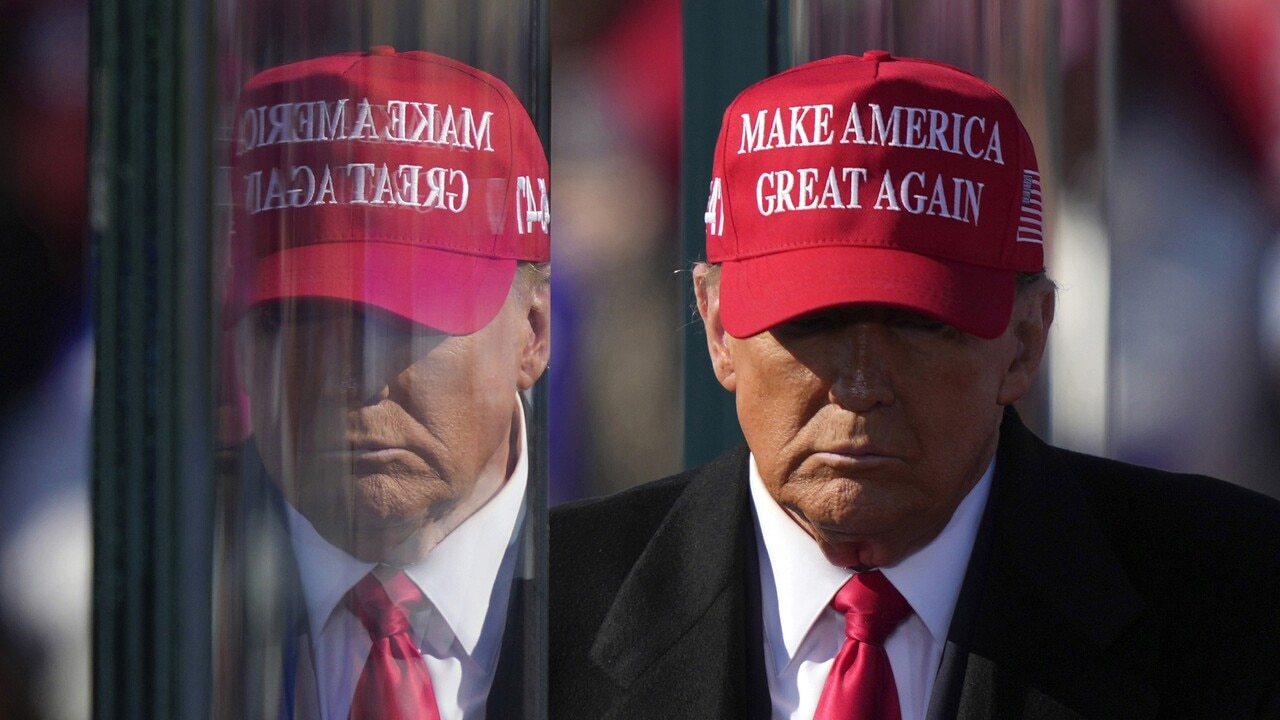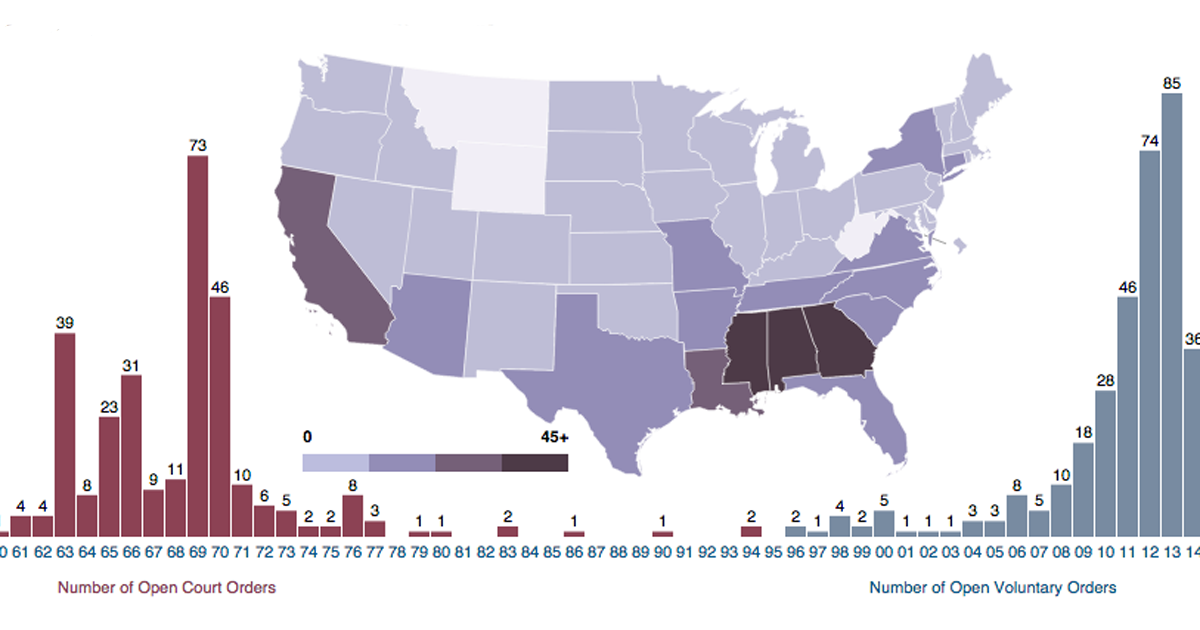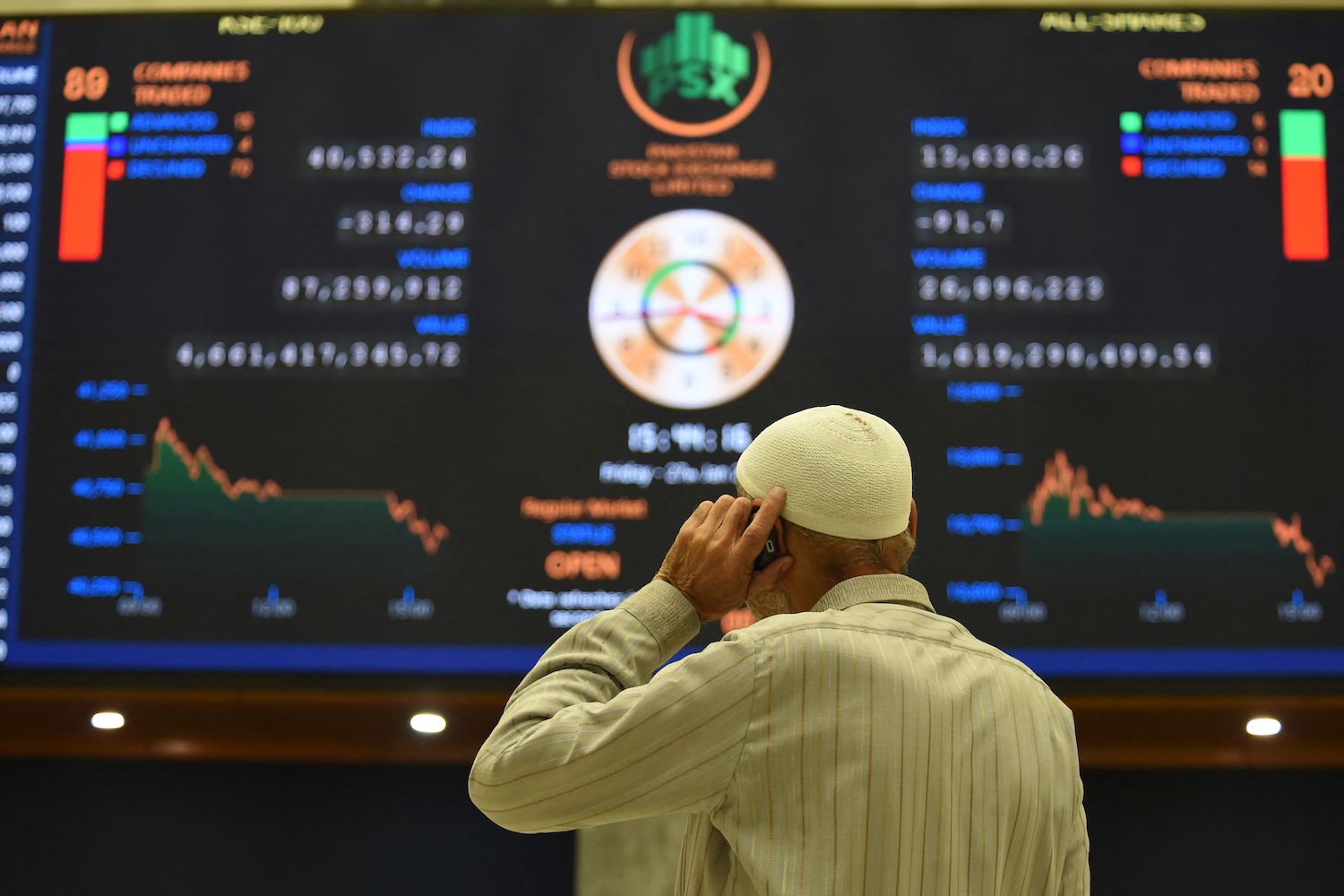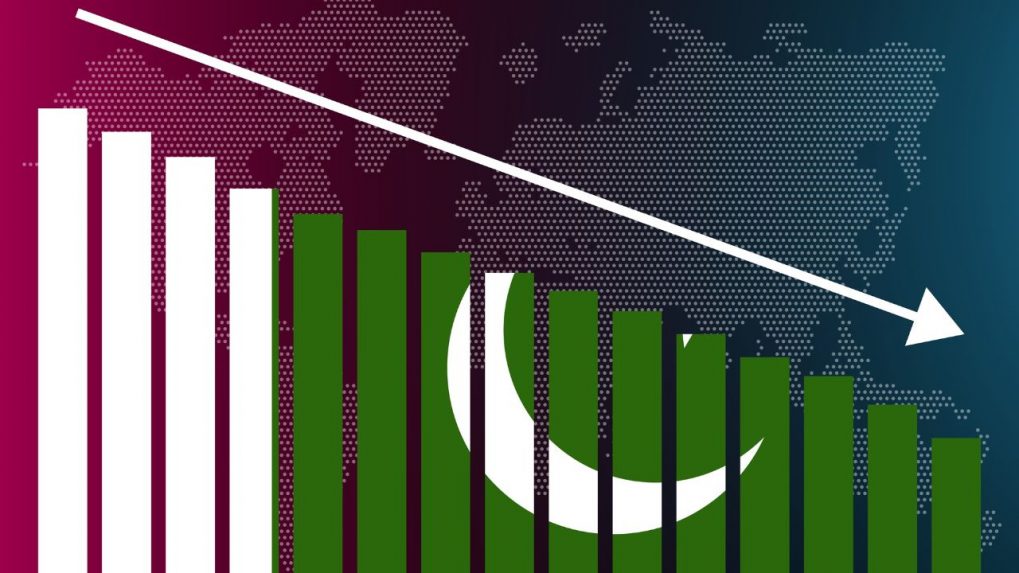The Zuckerberg-Trump Dynamic: Implications For Technology And Politics

Table of Contents
Facebook's Role in the 2016 US Presidential Election and Beyond
Facebook's role in the 2016 US Presidential election, and its ongoing influence, is inextricably linked to the Zuckerberg-Trump dynamic. The platform's algorithms and policies played a significant role in shaping the political discourse and the outcome of the election, raising serious questions about the responsibility of social media companies in safeguarding democratic processes.
Cambridge Analytica Scandal and Data Privacy
The Cambridge Analytica scandal serves as a prime example of the vulnerabilities inherent in the Facebook ecosystem.
- Millions of Facebook users' data were harvested without consent: This massive data breach highlighted the ease with which personal information could be exploited for political manipulation.
- This data was used to target voters with personalized, often misleading, political advertisements: Cambridge Analytica used sophisticated techniques to micro-target voters with tailored messaging designed to influence their voting decisions. This targeted approach maximized the impact of often manipulative content.
- The scandal exposed the lack of robust data protection measures on Facebook: The incident revealed significant gaps in Facebook's data security protocols, leading to widespread calls for increased regulation and greater transparency. The scandal directly impacted the public perception of Facebook’s commitment to user privacy.
The Spread of Misinformation and "Fake News"
The 2016 election saw a surge in the spread of misinformation and "fake news" on Facebook, significantly impacting public perception and the electoral process.
- Trump's campaign effectively used Facebook to reach voters directly with targeted messages: The campaign utilized Facebook's advertising platform to deliver tailored messages to specific demographics, bypassing traditional media channels.
- The algorithm amplified divisive content, contributing to political polarization: Facebook's algorithm, designed to maximize engagement, inadvertently amplified inflammatory and misleading content, further exacerbating societal divisions.
- Facebook's slow response to tackling fake news raised concerns about its responsibility in maintaining a healthy information ecosystem: The platform's initial reluctance to address the problem fueled criticism about its role in the spread of false narratives and its responsibility to combat misinformation.
Zuckerberg's Testimony Before Congress and the Regulatory Debate
Mark Zuckerberg's appearances before Congress following the 2016 election and the Cambridge Analytica scandal brought the Zuckerberg-Trump dynamic into sharper focus, prompting intense debate about the regulation of social media platforms.
Accountability and Regulation of Social Media Platforms
These high-profile hearings exposed the complex challenges of regulating powerful tech companies like Facebook.
- The hearings exposed disagreements about the extent of Facebook's responsibility for the content shared on its platform: The debate centered around Section 230 and the question of whether platforms should be held liable for the actions of their users.
- Debates centered on Section 230, its implications, and the need for stronger regulations: The legal framework surrounding online content moderation became a central point of contention, with calls for reform and stricter regulations.
- Discussions about data privacy, content moderation, and algorithmic transparency dominated the discourse: The hearings highlighted the need for greater transparency in Facebook's algorithms and stronger protections for user data.
The Impact on Free Speech vs. Responsibility
The Zuckerberg-Trump dynamic highlighted the inherent tension between free speech principles and the responsibility of social media platforms to prevent the spread of harmful content.
- Critics argued that Facebook's policies were insufficient to prevent the spread of misinformation and hate speech: Concerns were raised about the platform's ability to effectively moderate content and combat the spread of harmful narratives.
- Supporters of Trump claimed censorship and argued against stronger regulation: Conversely, some argued that stronger regulations would infringe on free speech principles.
- This debate remains central to ongoing discussions about online content moderation: The ongoing struggle to balance free speech with the need to combat harmful content remains a key challenge for social media companies and policymakers.
Long-Term Implications for Democracy and Political Discourse
The Zuckerberg-Trump dynamic has had profound and lasting implications for democracy and political discourse, impacting trust in institutions and fundamentally altering the landscape of political communication.
Erosion of Trust in Institutions
The events surrounding the 2016 election and the subsequent controversies have significantly eroded public trust.
- The use of social media for political manipulation eroded public confidence in elections: The revelations about the use of data and targeted advertising to influence voters raised concerns about the integrity of the electoral process.
- The spread of misinformation fueled skepticism towards traditional news sources: The proliferation of false narratives undermined public trust in established media outlets.
- This erosion of trust has broader implications for the health of democracies: The decline in faith in institutions poses a significant threat to the stability and effectiveness of democratic systems.
The Future of Political Communication and Campaigning
The Zuckerberg-Trump dynamic has irrevocably changed how political campaigns are run and political communication is conducted.
- Social media platforms are now integral to political strategy and outreach: Social media has become an indispensable tool for political parties and candidates.
- This reliance raises concerns about the potential for future manipulation and the need for greater transparency: The increasing reliance on social media for political communication necessitates greater transparency and safeguards against manipulation.
- The future of democratic processes hinges on addressing the challenges posed by this new reality: Moving forward, addressing the issues raised by the Zuckerberg-Trump dynamic is crucial for safeguarding the integrity of democratic processes.
Conclusion
The Zuckerberg-Trump dynamic serves as a stark reminder of the profound implications of the intersection between technology and politics. The spread of misinformation, data privacy concerns, and the power of social media platforms to influence elections represent critical challenges for democracy. Understanding this complex relationship is crucial for navigating the future of political discourse and ensuring a healthier information ecosystem. We must continue to critically examine the Zuckerberg-Trump dynamic and demand greater accountability from tech giants and policymakers to prevent similar scenarios from unfolding. Further research and public discourse on the implications of this technology-politics interplay are vital for building a more resilient and informed democracy.

Featured Posts
-
 Nebraskas Voter Id Program A National Award Winner
May 02, 2025
Nebraskas Voter Id Program A National Award Winner
May 02, 2025 -
 Recipe Perfectly Cooked Crab Stuffed Shrimp In Lobster Sauce
May 02, 2025
Recipe Perfectly Cooked Crab Stuffed Shrimp In Lobster Sauce
May 02, 2025 -
 Waarom Kreeg Fouad L Levenslang En Geen Tbs De Uitleg
May 02, 2025
Waarom Kreeg Fouad L Levenslang En Geen Tbs De Uitleg
May 02, 2025 -
 Justice Department Ends School Desegregation Order What Happens Next
May 02, 2025
Justice Department Ends School Desegregation Order What Happens Next
May 02, 2025 -
 Harry Potter Remake Six Things That Must Be Right For Success
May 02, 2025
Harry Potter Remake Six Things That Must Be Right For Success
May 02, 2025
Latest Posts
-
 Ukrainskie Bezhentsy I S Sh A Prognozy Dlya Germanii
May 10, 2025
Ukrainskie Bezhentsy I S Sh A Prognozy Dlya Germanii
May 10, 2025 -
 India Pakistan Tensions Cast Shadow On Imfs 1 3 Billion Loan To Pakistan
May 10, 2025
India Pakistan Tensions Cast Shadow On Imfs 1 3 Billion Loan To Pakistan
May 10, 2025 -
 Pakistan Economic Crisis Imfs 1 3 Billion Package Under Review
May 10, 2025
Pakistan Economic Crisis Imfs 1 3 Billion Package Under Review
May 10, 2025 -
 Izolyatsiya Zelenskogo Otsutstvie Gostey Na 9 Maya
May 10, 2025
Izolyatsiya Zelenskogo Otsutstvie Gostey Na 9 Maya
May 10, 2025 -
 S Sh A I Noviy Potok Bezhentsev Iz Ukrainy Vzglyad Iz Germanii
May 10, 2025
S Sh A I Noviy Potok Bezhentsev Iz Ukrainy Vzglyad Iz Germanii
May 10, 2025
